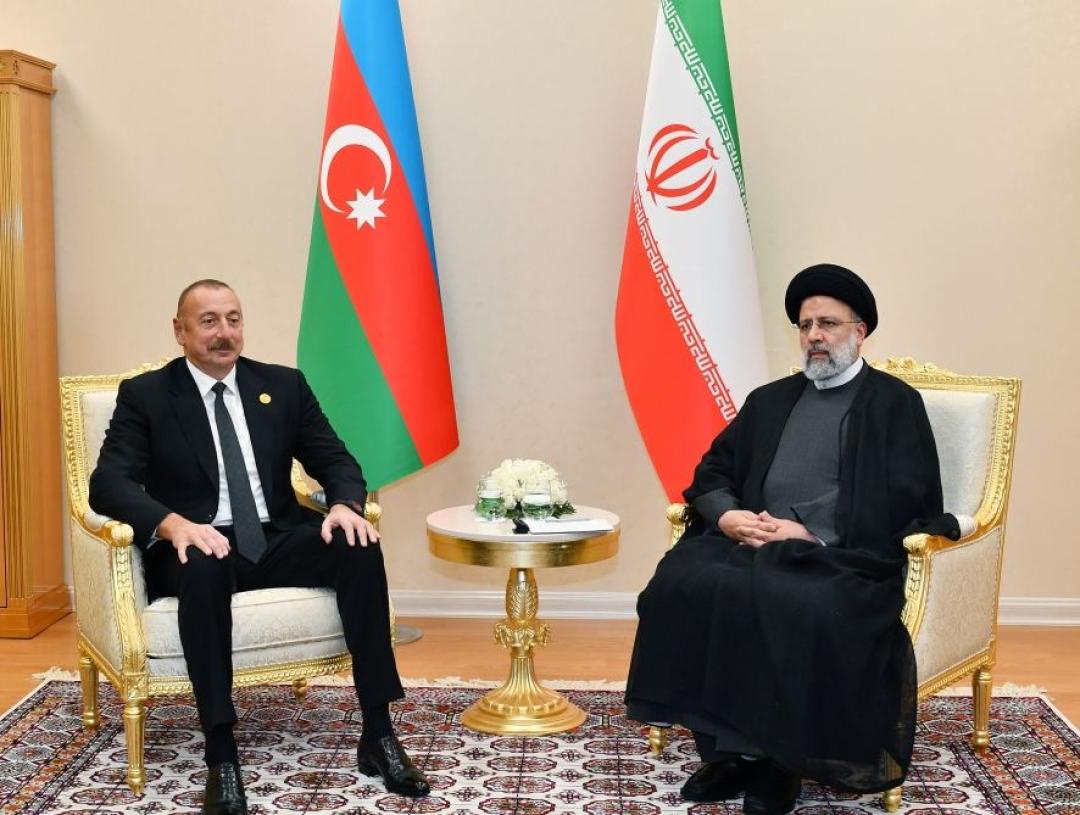
New Transport Agreement between Azerbaijan and Iran and Its Implications on Bilateral and Regional Policy

Yunis Sharifli is a Research Assistant at the Middle East Institute. He also works as a Junior Research Fellow at the Caucasian Center for International Relations and Strategic Studies (QAFSAM) and at the Topchubashov Center in Azerbaijan.
On 11 March, Azerbaijan and Iran signed a memorandum of understanding (MoU) on establishing railway, highway, communication, and energy supply lines connecting Azerbaijan’s East Zangezur economic region and the Nakhchivan Autonomous Republic through the territory of Iran. According to the document, there is a plan to build four bridges over the Araz River and two railways and develop communication and energy supply infrastructure to establish a new corridor.
The new agreement fits both countries' political and economic interests in bilateral relations and their regional interests. In the context of the decreasing role of Iran on regional issues after the Second Nagorno-Karabakh War in 2020 and strained relations between the two countries in 2021, the new agreement creates new opportunities to build confidence between Azerbaijan and Iran. The first gas swap deal and new transport agreement may help reduce tensions and promote constructive relations. It will also increase Iran and Azerbaijan's political and economic interdependency in the short and medium term.
In the context of regional political opportunities, the new agreement creates better conditions for both countries to follow their national interest and improve their relations.
First, for Iran, the new deal helps stabilize its relations with Azerbaijan and reduce its threat perceptions from the northern border. This factor plays an essential role for Iran: it helps Iran break isolation and be involved in the South Caucasus regional issues. This, in turn, decreases uncertainty in the era of the increasing role of Turkey in the Middle East and the unstable situation in Afghanistan that threatens Iran's eastern border.
Second, with a new agreement, Iran will play a transit role between Azerbaijan and Turkey. By way of the new corridor, Tehran may increase its leverage vis-à-vis Ankara and balance Turkey's political influence in the South Caucasus.
Third, Iran may gain a transportation link with Russia. The country will get an opportunity to use the Baku-Tbilisi-Kars (BTK) railway via a new communication link that allows Iran to involve the South Caucasus transportation link to reduce its dependency on maritime routes.
For Azerbaijan, a new corridor through Iran creates an alternative to the Zangezur corridor, which is planned to go through Armenia. With this new agreement, Azerbaijan can encourage Armenia to accelerate peace negotiations and open the Zangezur corridor because the new corridor bypasses Armenia and isolates it from the regional transportation link. In addition, the new passage may create competition between Iran and Armenia to become transit countries, and this situation may strengthen Azerbaijan's position vis-à-vis the two countries.
Azerbaijan will also gain a land link to Nakhchivan via a shorter route. Furthermore, it can strengthen and diversify its connection with Turkey through Iranian and Georgian territories.
Finally, Azerbaijan can decrease Russian influence on regional transportation projects. Unlike the Zangezur corridor, which Russia's Federal Security Service would control, no third party will control the new route.
The new agreement positively contributes to economic relations between Azerbaijan and Iran and their regional position. In terms of bilateral economic ties, trade turnover between the two countries was $440.8 million in 2021. The volume of cargo trucking increased by 70 percent in the first three months of 2022 compared to the same period of 2021. New communication links can reduce transportation costs and boost trade. Furthermore, constructing railways and roads has a spillover effect that helps create new jobs for both sides. This factor is essential for Iran because, in the context of rising food prices and other economic issues, the creation of new job opportunities can help Tehran to secure its stability.
From the point of regional level, the project would strengthen countries' geo-economic positions.
First, Tehran will enjoy transit fees that positively contribute to Iran's economy. Each ton of goods transiting through Iran is reportedly the same as that from each barrel of oil exported. Every ton of goods that passes through Iranian territory costs approximately $100, which is close to the cost of one barrel of oil. Moreover, through new communication links, Iran can strengthen its position as the East-West trade corridor between Azerbaijan and Turkey.
Second, thanks to the railway link with Azerbaijan, Tehran will also gain a physical connection with Russia. In this way, Iranian companies may enjoy the maximum advantage of the preferential trade agreement between the Islamic Republic and the Moscow-dominated Eurasian Economic Union.
For Azerbaijan, a new rail link could accelerate the reconstruction of the Karabakh region because both hard and soft infrastructure development increases the area's attractiveness to international companies. After all, improving transportation reduces cost, helps predict the arrival time of goods, and increases benefits.
The new corridor could help Azerbaijan diversify its routes and expand its carrying capacity through East-West Trade. In the era of growing sanctions on Russia and the reluctance of international companies to use Russia as a transit country for exporting their goods from China to the EU, a new corridor through Iran would increase both the strategic and economic importance of Baku and Tehran. It may create a chance for them to play a key role in East-West trade.
Despite the different opportunities of the new corridor, the project's future depends on Azerbaijan-Armenia relations. Recently, President Ilham Aliyev noted that both countries reached an agreement on opening the Zangezur Corridor. If peace negations conclude and the Zangezur corridor opens, there will be doubt about the economic and strategic importance of the new passage through Iran. That is why Azerbaijan and Armenia relations may determine the future of a new corridor between Azerbaijan and Iran.
To sum up, a new agreement between Azerbaijan and Iran could help them to reduce tension, stabilize relations and boost bilateral economic ties. Furthermore, the latest deals create opportunities for their bilateral relations and allow them to strengthen their political and economic regional position in the South Caucasus. In the short term, the new agreement allows both countries to gain financial benefits and keep a balance of power stable in the South Caucasus. In the medium term, the corridor would strengthen countries' transit positions and create a chance to play key roles in the East-West trade.
See Also


3+3 Initiative as a New Order in the South Caucasus

Economic Cooperation Between Armenia and Georgia: Potential and Challenges Ahead

Russia and Occupied Abkhazia: A New Type of Relations

Georgia and US: From Close Ties to Caution

